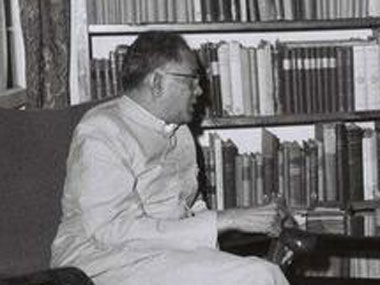The nation is celebrating Jayaprakash Narayan’s birth anniversary today. For those of his disciples who prefer vituperation as a form of political discourse, a study of JP’s angry and critical letters to Bihar’s first chief minister Sri Krishna Sinha will be quite instructive.[caption id=“attachment_4132791” align=“alignleft” width=“380”]  Jayaprakash Narayan. Image courtesy Wikimedia Commons[/caption] JP wrote a series of letters to Sinha (known as Shribabu), accusing him of complicity in perpetuating casteism and corruption, of promoting a leader from his own caste, Mahesh Prasad Sinha, over another leader, KB Sahaya, a Kayastha by caste. Of course, these no-holds-barred letters triggered an equally ferocious response from Shribabu who accused JP of getting influenced by the “vitiated atmosphere” of Bihar and taking up Sahay’s case on casteist considerations. JP was quite hurt by Shribabu’s acerbic response. And Shribabu was equally bruised by JP’s allegations and his stubbornness to stand by them. However, the matter never crossed the limits of civility and normal courtesies. Can you expect even a patch of those standards from JP’s disciples in Bihar? Lalu Prasad Yadav and his family indulge in a kind of discourse which is probably of the gutter level. His loyalists like Shivanand Tiwari speak the language of innuendo that amounts to character assassination of the families having an association with his rival Nitish Kumar. After Gujarat, Bihar had the closest association with JP. The sparks of Navnirman (‘Reconstruction’) movement in Gujarat triggered conflagration in Bihar with JP in the eye of the storm. Phaneeshwar Nath ‘Renu’ and Ram Dhari Singh ‘Dinkar’, both stalwarts of Hindi literature, were the pillars of strength for JP. And the younger generation supporters were led by Lalu, Nitish and Tiwari among many others. Looking back, all one can say is that the JP movement has given the worst and the best to the state. Chief Minister Nitish Kumar is known for restrained language and dignified conduct. But that cannot be said for his party leaders whose retorts to Lalu and Tiwari are quite akin to a street fight. Lalu and his family have been involved in a series of corruption cases. Though he emerged as the most powerful leader in Bihar after Shribabu, his spell of governance was marked by criminality and nepotism of the worst order. Lalu was replaced by another JP disciple, Nitish Kumar, whose excellent track record in governance has been interrupted by political indiscretions of late. Given the nature of political inconsistency that the state has internalised, he is exposed to charges of being an opportunist. That’s why Lalu publicly ridiculed him by calling him paltu ram (the somersault man). Perhaps, Bihar in general and Patna, in particular, are the only places where JP’s birth anniversary is celebrated with enviable enthusiasm. Those living in the age bracket of 55 years and above still recall with nostalgia that they had a stake in JP’s clarion call for Sampurna Kranti (Total Revolution) in 1974. Now we know better; the revolution may be a bad dream. But will it be too much to expect that JP’s disciples mend their ways and shun coarse language in public life? They can take a leaf out of JP’s run-in with Shribabu in 1957 and the respect they showed for each other. If this happens, it will be a far greater tribute than ritually garlanding the bust of a leader whose selfless life is a message.
Lalu Prasad Yadav and his family indulge in a kind of discourse which is probably of the gutter level.
Advertisement
End of Article


)
)
)
)
)
)
)
)
)



